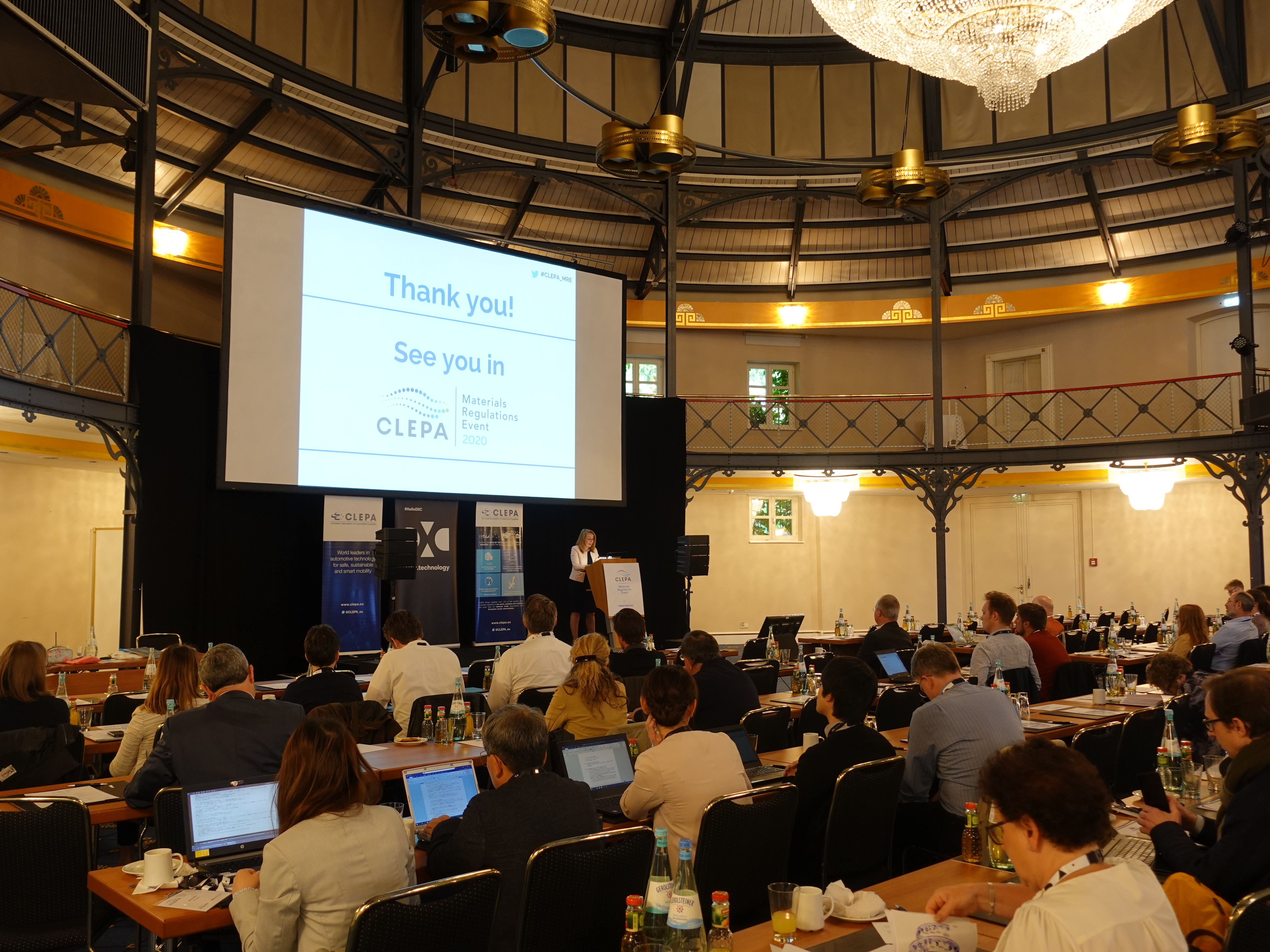CLEPA Materials Regulations Event 2019: safe handling and disposal of materials is a global goal for minimising the environmental impact of the industry
On May 21st and 22nd, CLEPA organised in Stuttgart, the 12th edition of its yearly “Materials Regulations Event”. The European Association of Automotive Suppliers hosted more than 200 high-level representatives from the entire automotive industry, coming from 50 countries.

The production of vehicles involves the use of a diverse range of materials, chemicals and processes. The responsibility of safe handling uses, and disposal of the products is a high priority for suppliers. These and other key technical issues related to the use of hazardous materials and substances and the most recent legislative developments at European and international level were presented and discussed during these two days.
In her keynote speech, Sigrid de Vries, CLEPA Secretary-General highlighted “The awareness about environmental protection is increasing in society and this creates a demand for highly-efficient vehicles with a lesser impact on the ecosystem. The concept of the circular economy is already integrated throughout the vehicle production cycle, as automotive parts are designed to be sustainable across their entire lifecycle.”
The European Commission presented on the upcoming revision of the ELV (End of Life Vehicle) regulation, a fundamental tool to drive circularity in the automotive sector. The sector is continually investing in innovations in material use, design and processes that contribute to solving the current regulatory challenges.
UNECE elaborated on Global Chemicals Outlook II (GCO-II). The forecast showed that the global use of global chemicals is expected to double by 2030. Therefore, the introduction of procurement that ensures the sustainability criteria will create opportunities for the sector, that is well-positioned to stimulate innovation, including alternatives based on green and sustainable chemistry.
Also, possible Brexit scenarios were presented, and how these would have a global impact in countries which have already introduced EU chemical regulations into their regulatory framework. CLEPA highlighted how a no-deal Brexit would threaten many of the complex regulatory systems under which, the UK and European companies operate. Highly regulated sectors, including the automotive industry, as well as those that handle chemicals, are particularly at risk of being unable to do business if there is no deal.
Special attention was given to the use of plastics in the sector, following the European Commission’s plastics initiative, that proposes concrete actions designed to make the vision for a more circular plastics economy a reality. Automotive suppliers have been steadily increasing the number of sustainable materials in their parts, promoting the European leadership in global solutions that are contributing to making the transition towards a low-carbon and circular economy.
Other topics such as IMDS – International Materials Data (reporting) System 12.0 were presented, while car manufacturers stressed the importance of updating the material data accordingly for legal compliance.
In her closing remarks, Mariola Hauke, CLEPA Technical Regulations Manager highlighted that “CLEPA, via the Materials & Substances working group, is actively involved in global issues together with other associations. Together we aim to reduce the global environmental impact of the industry and promoting business integrity.”
The 13th edition of the Materials Regulation Event is scheduled in Spring 2020 and will take place in the Stuttgart area (Germany).
Attachments
In: CLEPA News, Environment & Energy, Materials & Substances



